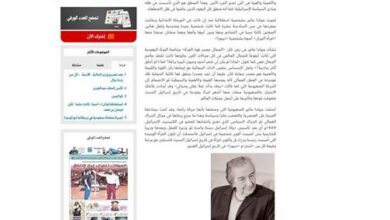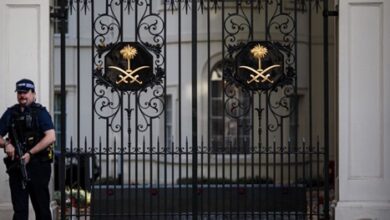Corruption scandal chasing Saudi regime in Germany

A British newspaper has revealed a new corruption scandal for the Saudi regime, this time in Germany, which is being investigated in paying a bank a financial bribe to a consultant at the Royal Court.
The Financial Times published a report written by Olaf Storbeek, Stephen Morris and Arash Masoudi, entitled “Investigations of concessions and funds provided by Deutsche Bank Deutsche Bank to obtain the privilege of managing the wealth of a member of the Saudi royal family.”
The report says Deutsche Bank paid $1.1 million to obtain the privilege of managing the wealth business of a member of the Saudi royal family, according to an internal investigation that led to the transfer of two former bank employees to the Public Prosecution.
The investigation indicates that the scandal, which appeared in the wealth management department, and included money paid to the wife of a financial advisor to the royal family, highlights legal risks and discredits one of the most important central departments of the German bank that hopes to achieve high profits.
According to the results of the investigation, which was seen by the Financial Times, the transfers were made during 2011 and 2012 along with other concessions granted to the counselor’s family, including an internship grant and attendance at a Swiss ski resort.
The investigation, which was conducted between 2014 and 2016, and which bore the name “Dastan Project”, found that the bank employees concerned were trying to keep the wealthy customer and coveted winning additional work. The investigation considered that what happened violates the bank’s policies on fighting corruption and accepting gifts of all kinds.
The report says that six employees left the bank after the investigation, and some of them got prominent jobs in Barclays, UniCredit and Union Bankeri Brayef, while stopping the rewards of 12 employees. The bank referred two of its employees to the Public Prosecution office on charges of bribery and embezzlement. Prosecutors told the newspaper that their investigation was continuing.
However, both employees appealed the charges against them in court. One of them was accepted to challenge and won the case, while the other was settled.
The investigation states that the bank was forced to give the advisor’s daughter a training grant in the legal department of the bank’s branch in London after the Saudi adviser threatened that if the bank did not respond, this would “jeopardize the customer’s dealings and relationships with the bank” and that he might pay to transfer the customer’s money to a place else.
On this, the bank told the Financial Times, “This was an individual act by a small number of employees who violated the bank’s policies.”
“We have discovered what happened, informed the official authorities and the customer, we dealt with the employees in an appropriate legal manner, and we made improvements to avoid the occurrence of something similar again.”





